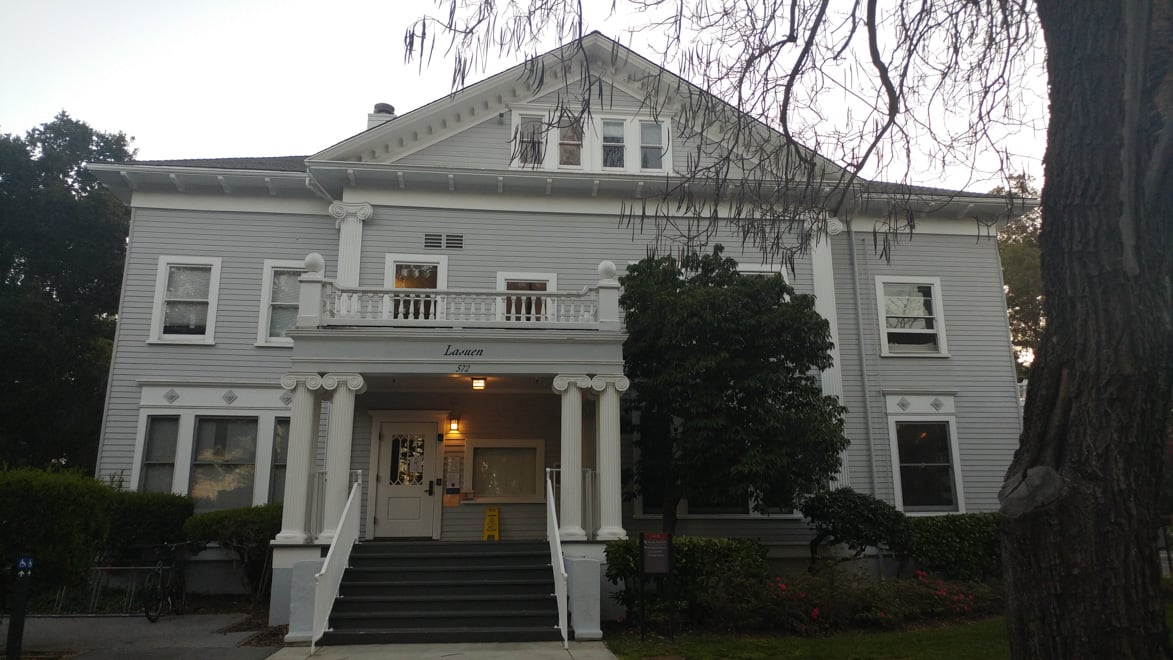The alleged drugging of several Stanford students by a non-Stanford student at the Sigma Chi fraternity house in January has motivated some — but not all — Row houses to institute new practices to prevent future drugging incidents.
After the alleged drugging, which occurred at a party and led to several hospitalizations, the Alpha Omega Housing Corporation, the Sigma Chi alumni organization that owns the Stanford chapter’s residence, banned alcohol from the Stanford chapter’s house and began an investigation that prevented the fraternity from participating in spring recruitment. As a result, the house became a tier-three “self-op” for the 2018-2019 year.
One house that has made changes is the self-operating Haus Mitteleuropa, which instituted new practices at all-campus events, including the popular Beer & Pretzels. According to Haus Mitt theme associate Michael Spelfogel ’18, although large-scale drink spiking is not necessarily prevalent on campus, the new measures at Haus Mitt were instated in direct response to the alleged drugging at Sigma Chi.
Spelfogel said that staff members no longer pre-pour drinks, but instead hand out beer and other beverages as they are requested.
“In the past, our house and others would have dozens of cups on our bar or our counter and people could go up and grab them, but we wanted to minimize the possibility of anyone tampering with the drinks before they were consumed,” said Spelfogel.
Additionally, Haus Mitt amended its “consent sign” to include a clause about drinking safety. The sign, which partygoers must read aloud in order to enter house events, requires attendees to “show love, kindness and respect” to others, and to recognize that Haus Mitt will not tolerate acts of bigotry. The new clause requires partygoers to also promise, “I will watch my drink and not leave it unattended.”
“We made [the] changes to better protect all of the students who come to our events,” said Spelfogel.
Other Row houses, like the fraternity Kappa Alpha, have made no formal changes in response to the events at Sigma Chi. However, Kappa Alpha President Justin Kaull ’19 reported an increase in vigilance among the group’s members and leadership.
“We’ve really just talked to our membership and said … if you see something, say something or do something and be ready to step in,” Kaull said.
New measures have not been enacted everywhere. According to Kairos resident assistant Eisa Al-Shamma ’18, the co-op has not changed practices at its events in response to the Sigma Chi drugging.
“We’ve never had reports of [drugging] happening at Kairos or at any Kairos function, so it’s not something we are so actively thinking about preventing,” Al-Shamma said.
Drinks at Kairos events are poured by house members over the age of 21 and handed directly to event-goers, according to Al-Shamma. The Kairos “consent sign” does not include a clause about drink safety.
Julie Freels ’19 said that although she believes Row houses should take steps to prevent drink-spiking, the amended consent sign at Haus Mitt “seems a little bit pointless.”
“What college student doesn’t already know [not to] leave your drink unattended?” Freels asked.
Freels also expressed concern that altered consent signs might suggest that drugging victims are responsible for their attacks.
“[The sign at Haus Mitt implies] that if I’m not watching my drink, it’s my fault, whatever happens to me,” she said.
Other residences, including the Enchanted Broccoli Forest (EBF), avoid drink-spiking by not offering drinks at all-campus parties.
“Because we don’t offer alcohol or drugs at EBF parties open to the Stanford community, I don’t know that I have much to say,” Bella Wilcox ’19, EBF’s community manager, wrote in an email to The Daily. She added that they “haven’t run into many issues regarding drugs and alcohol.”
Staff from Jerry made similar statements, noting that the self-op house generally does not throw all-campuses.
According to a 2017 study published in the journal “Psychology of Violence,” over 1 in 13 college students surveyed report being drugged at one point. Although the study relied on self-reported data, it had a large sample size, analyzing survey data from over 6,000 students at three U.S. universities.
The study stated that victims reported that their druggings most often occurred in a house or apartment (38 percent), followed by a fraternity (29.7 percent) or a bar (26.3 percent). Reports of druggings were significantly less prevalent in dorms (4.8 percent) and sororities (1.2 percent).
The Daily also reached out to the leadership of Delta Delta Delta, Phi Kappa Psi, and Theta Delta Chi for interviews regarding any changes the houses may have made in response to the Sigma Chi drugging incident. All declined to comment.
Leadership from Kappa Alpha Theta, Kappa Sigma, Pi Beta Phi, Sigma Nu, Slavianskii Dom and 576 Alvarado did not respond to requests for comment.
Yasmin Samrai contributed to this report.
Contact Michal Leibowitz at michalgl ‘at’ stanford.edu.
